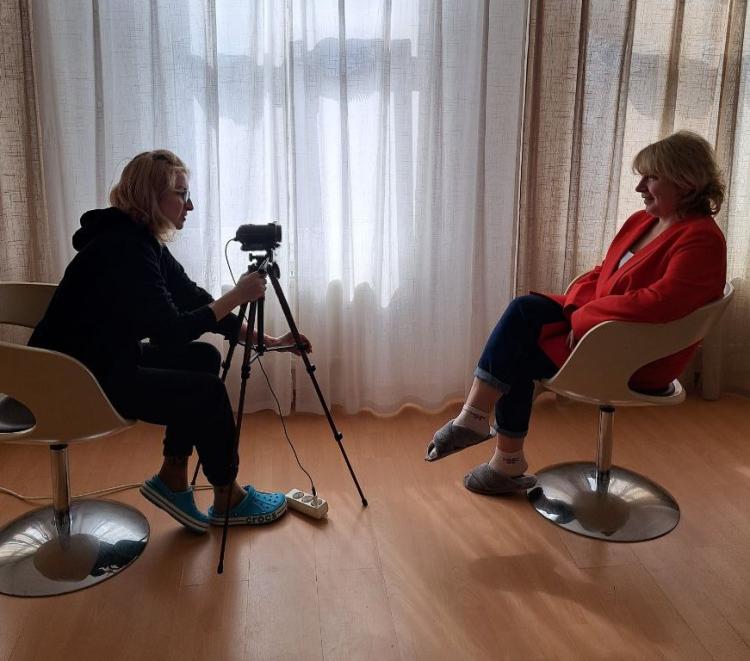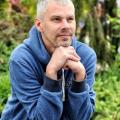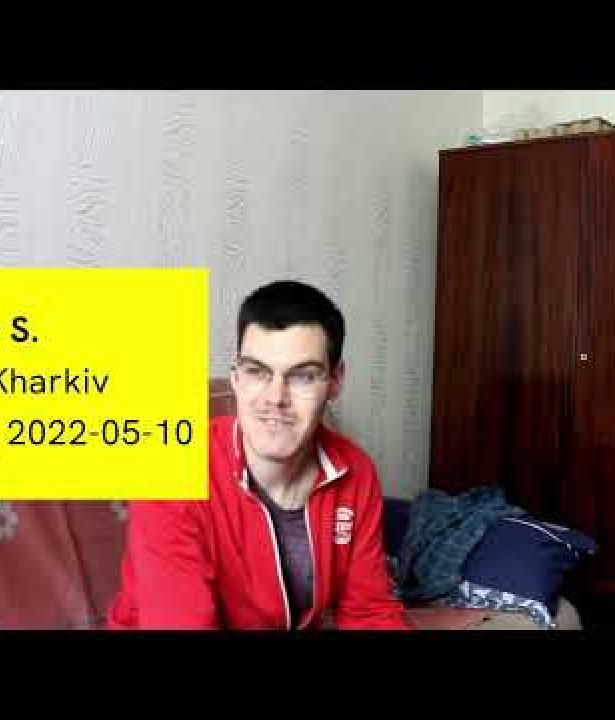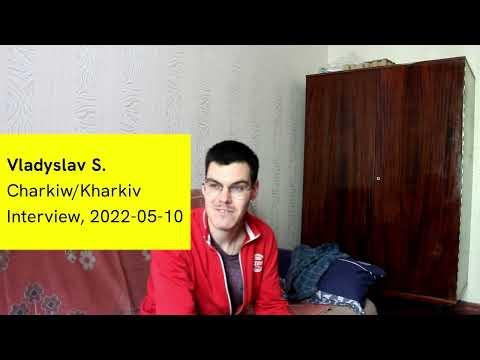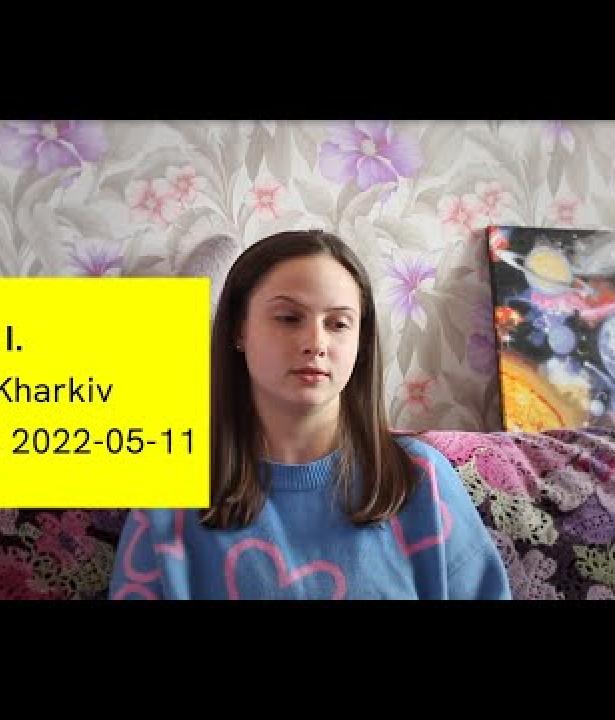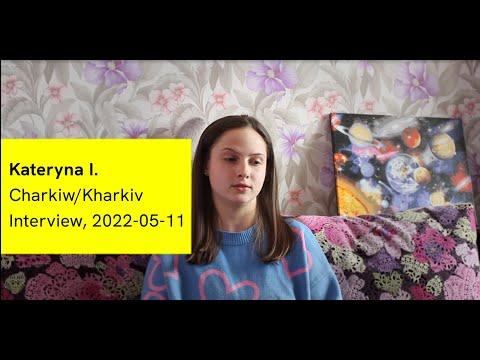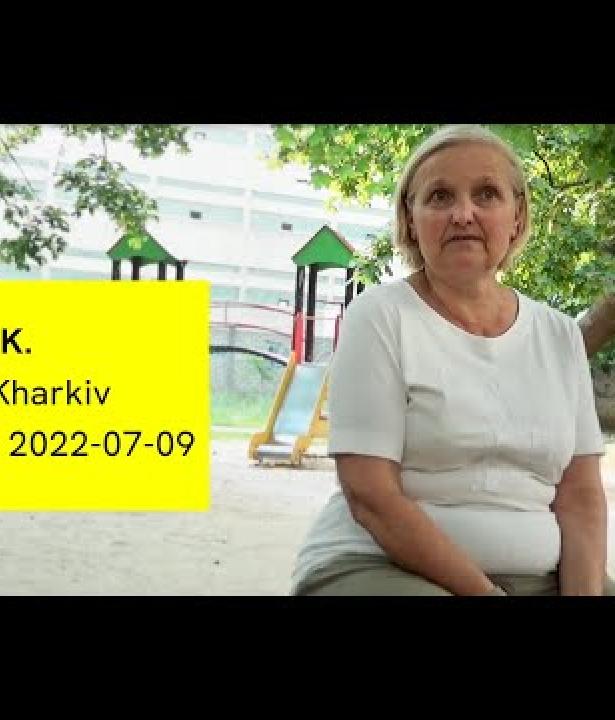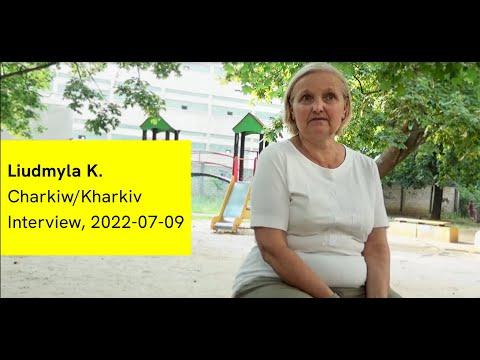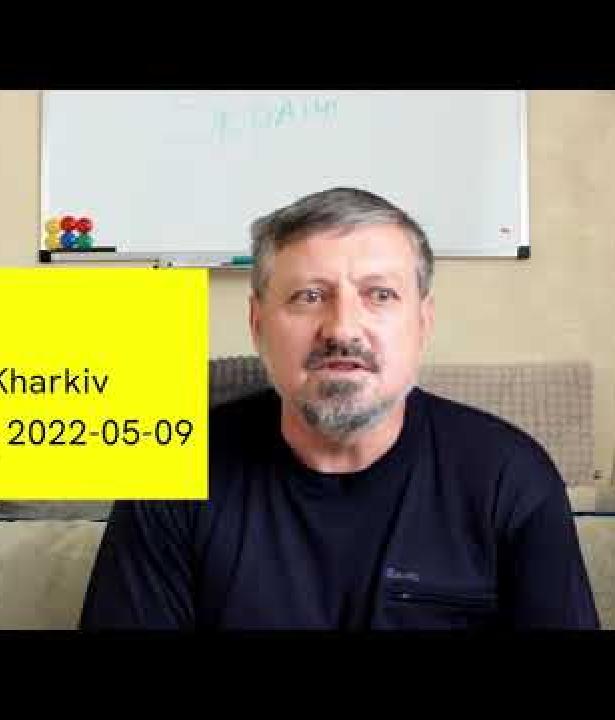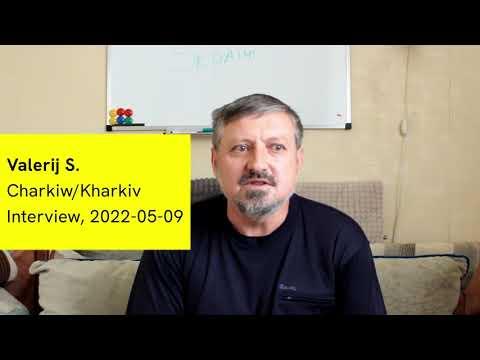What does it mean to interview people when there is a war going on? Yevhenii Telukha describes the difficult circumstances under which the interviews were produced.
Text
Our interviews were conducted under wartime conditions. Kharkiv is 40 km from the Russian border. Since 24 February 2022 the city has been constantly under fire, und unfortunately it still is. The interviewers and the interviewees are surrounded by this danger wherever they are. Over time we have learnt to adapt – through observation, creativity and resourcefulness we have learnt how to manage despite the dangers and to establish relative safety for the period of the interview.
We started recording interviews on the first day of the war. At that time the city was under constant fire. We therefore conducted our first interviews in cellars and in private flats in accordance with the “two-wall rule”. This means trying to be in a part of the flat that has no windows or doors with glass panels. We started interviewing each other during the first days of the war – it helped us to process the situation and to achieve some objectivity. Later, when the bombardment had eased off and the weather had got warmer, we started to interview people outside – the interviews presented here are from this period.
However, we still had to take care to avoid using any completely open spaces for the interviews. We would meet in the courtyards between apartment blocks, as close as possible to an air raid shelter. There were some interviews that we could not finish in a single shoot – we had to abort them and continue on another day when we could leave the air raid shelter again. Naturally this affected the quality and completeness of the interviews and the video recordings. It also meant that the way the interviewers and interviewees felt changed during the course of those interviews. There was also another challenge: to begin with, many of the respondents were highly suspicious of the members of the project group. They wanted to know who we were, and expressed their distrust. It is worth remembering that the part of the group that remained in Kharkiv was mainly made up of men. Since people in the city were frequently being warned about looting, many had particular reservations about men. We therefore always showed the interviewees an official document with a passport photo and a signature, certifying that they were researchers. But despite this almost all of our interviewees only wanted to speak to us outdoors or in public places. An invitation into their home was a great rarity.
This led to new difficulties when it came to recording the interviews: it turned out to be exceptionally difficult to find a suitable place. In addition to the safety criteria that I have already mentioned, the place also had to comply with the requirements for filming in public places, which had been tightened due to the war. For example, because of the war, we are not permitted to take photographs and video recordings of destroyed buildings, and unfortunately there are now a great many of these in Kharkiv. Filming in front of checkpoints, military posts or police stations is also prohibited. Filming in the metro or in air-raid shelters without special permission is also not possible. Finding a suitable place to record the interviews was therefore often a challenge in itself.
There were further problems: not only did we need to make sure we had good weather, as you do when you are filming outdoors. Often we would suddenly be disturbed by loud noises, or a passer-by would walk in front of the camera. Sometimes people under the influence of alcohol would force themselves in front of the camera and want to express their “interest” in the project...naturally this was disturbing for interviewer and interviewee alike.
The timing also had to be chosen with the greatest care: curfews had been imposed in Kharkiv since the start of the war, and their length depended on the severity of the attacks and the fighting. For example, at the beginning of the war, the curfew began as early as 4pm. Consequently, we had to keep an eye on the time during the interview, so that everyone participating in it would be able to start making their way home in time to get there before the curfew.
Text
English Translation: Gwen Clayton

